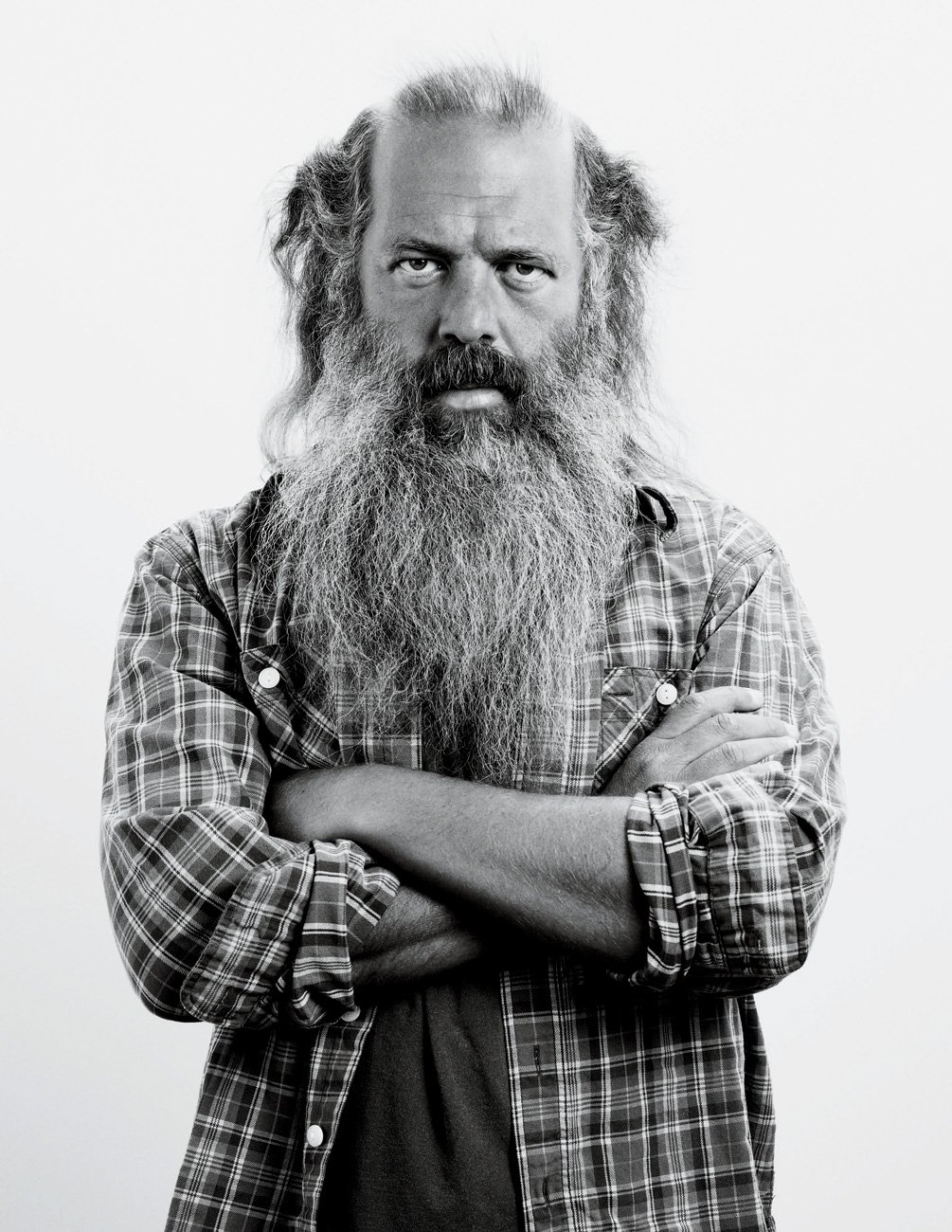Rick Rubin é um dos mais celebrados produtores dos últimos 40 anos. Desde quando surgiu, nos anos 80, trabalhando em discos icônicos de Beastie Boys, Run DMC e Slayer, Rubin tornou-se rapidamente uma estrela que sedimentaria sua reputação nas décadas seguintes através de produções para Red Hot Chili Peppers, Johnny Cash, System Of A Down, Jay Z, Audioslave, The Mars Volta, Kanye West, Metallica e mais recentemente Eminem, Damien Rice, Wu-Tang Clan e Black Sabbath, dentre tantos.
Eis que Rubin resolveu começar a usar a plataforma GENIUS para compartilhar alguns dos segredos das suas produções e suas impressões gerais sobre alguns artistas. Sobre o System Of A Down, por exemplo, que foi um sopro de originalidade no metal do final dos anos 90/início dos 00, escreve:
You’ve got this unbelievable band that don’t sound like anyone else, ever. They’re four Armenian guys. I went to see them live, and every label had passed on them. They were at the Viper Room, it was packed. It was the funniest show. I couldn’t stop laughing. It was intense. The problem with hard music is that it almost all sounds the same. Heavy metal has very strict guidelines. The beauty of System of a Down is that it’s so weird and so groovy but hard as fuck. And the singer is great.
For “Toxicity,” Serj didn’t have words for the bridge. We were at my house doing the vocals and working on the idea, and I remember the idea of the father happening and then us trying to make it biblical in that way. It’s really heavy.
I don’t know what it means, but I know how it makes me feel. It’s like a lot of Neil Young songs, where the lyrics don’t necessarily make sense, but they give you this feeling of something going on. This does that. And it goes from that wackiness of the verse to the epic sadness of the chorus. It’s so weird. And listen to how much harmony there is. Vocal harmonies — no one has vocal harmonies.
Sobre “99 Problems”, um dos maiores sucessos de Jay Z:
Jay came into my studio every day for like a week, I kept trying things that I thought would sound like a Jay record, and after like three or four days he said, “I want to do something more like one of your old records, Beastie Boys-style.” Originally that’s not what I was thinking for him, but he requested that vibe, and we just started working on some tracks.
Musically, there were a couple of different ideas that [engineer] Jason [Lader] and I were working on independently that we played back together, and the way the beats overlapped was really interesting. It wasn’t planned out, it was more experimenting.
There was a part where it really sounded crazy and the beats were fighting each other. Jason was operating the Pro-Tools, and I’m saying “Move to the left, move to the right, try this beat, add this, do this,” and then he makes it do it. There’s nothing live on the track.
It’s a combination of three samples — “The Big Beat” by Billy Squier, “Long Red” by Mountain, and “Get Me Back On Time” by Wilson Pickett — and two programmed beats coming in and out.
Ou ainda sobre “Hurt” e a espetacular e improvável interpretação de Johnny Cash para a música do Nine Inch Nails:
For all the records we made together, he would play me songs and I would play him songs until we got to the point where we both liked the songs. There were always hundreds of songs in play, not necessarily recorded but discussed.
You can usually tell which ones I brought to the table. “Rusty Cage” was mine, “Hurt” was mine. He wouldn’t have heard those. Something like an old Jimmmie Rodgers song, chances are he brought it.
There are some exceptions. He brought in a Sting song, a modern Sting song, “I Hung my Head” which is really good. He brought in a Springsteen song, although I don’t know if we ever put it out. He brought in some modern stuff.
There were a lot of songs that he needed to be convincing about. Eventually, he trusted me enough that if I felt strongly about something, he’d do it. I would send him compilations of CDs of songs to listen to, and I remember that on several compilations in a row, “Hurt” was the first song. There’s just something about it. I imagined him saying those words being very powerful.
What I came to realize about that whole Johnny Cash experience was that he was a great storyteller. The song didn’t matter — all that mattered were the words. All that mattered was if the character of Johnny Cash — the mythical Johnny Cash, the man in black — would say those words. If that’s what you would want to hear him talking about, then that would be a good song to do.
So it was never about like melody, it was just about if the lyrics were right.
O baú é grande. Vale a pena ficar de olho no que ele ainda vai revelar.
![M.O.V.I.N [UP]](https://revistamovinup.com/wp-content/uploads/2019/03/Cultura-além-do-óbvio-Desde-2008.jpg)
